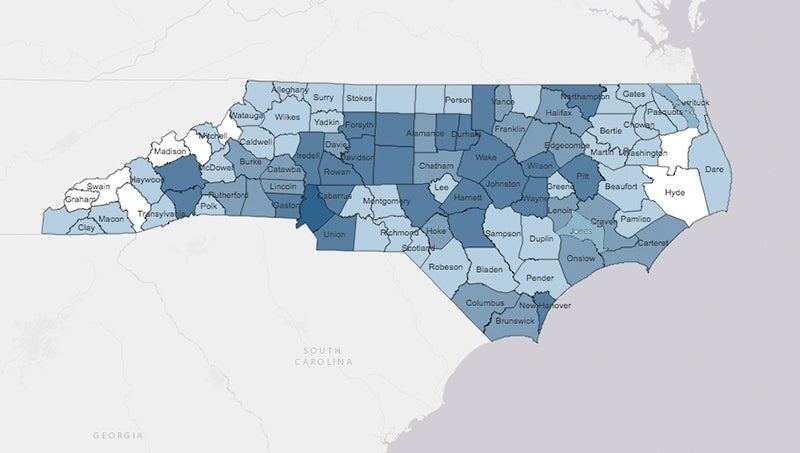COVID 19: State stats at a glance
Published 10:29 pm Saturday, April 11, 2020

- (N.C. Department of Health and Human Services)
|
Getting your Trinity Audio player ready...
|
The number of confirmed COVID-19 cases in North Carolina continued to rise from 3,963 on Friday to 4,354 Saturday. There have been 89 deaths in the state attributed to the virus and currently 362 hospitalizations. According to Beaufort County Health Department Director Jim Madson, four of those hospitalizations have been Beaufort County COVID-19 cases. Two of those cases remain hospitalized, and two have been released.
In Beaufort County, there were 13 confirmed cases of COVID-19 on Saturday. Seven of the 13 confirmed cases have recovered from COVID-19. Six cases remain active, according to the Saturday update from Beaufort County’s Office of Emergency Services.
The number of confirmed cases in the U.S. rose from 486,994 on Friday to 522,286 Saturday; these numbers include the 30,580 people in the U.S. known to have recovered from COVID-19. The U.S. has the greatest number of cases worldwide, and there are likely many more cases as those exhibiting symptoms are now being encouraged to stay home rather than get tested. Nationwide, 20,283 deaths have been attributed to the virus, an increase of 2,261 overnight. Five percent of all active cases are considered serious, requiring hospitalization, down from 19% in February; 11% of all U.S. cases have been considered serious, requiring hospitalization.
North Carolina has confirmed cases in 95 counties.
Of Beaufort County’s total of 13 cases, contact tracing of these known, confirmed cases has concluded:
- one case has been contributed to direct contact with a known patient from another county;
- two cases were related to travel to a known outbreak area;
- seven cases are attributed to community spread;
- three cases are still under investigation.
All active cases are self-isolating, the update reads.
Eastern North Carolina counties with current cases include: Bertie (12), Beaufort (13), Bladen (1), Brunswick (34), Carteret (21), Camden (1), Chowan (3), Columbus (31), Craven (24), Currituck (3); Dare (13), Duplin (15), Edgecombe (22), Gates (4), Greene (10), Halifax (21), Hertford (4), Jones (6), Lenoir (14), Martin (5), New Hanover (55), Northampton (61), Onslow (24), Pamlico (5), Pasquotank (15), Pender (5), Perquimans (4), Pitt (62), Sampson (11), Washington (15), Wayne (69) and Wilson (58). Durham (275), Mecklenburg (935) and Wake (424) counties have the most cases in North Carolina.
Cases of COVID-19 are now projected to peak on April 13. However, Madson said the peak period for the virus could last several weeks.
There have been 139 tests completed in Beaufort County as of Saturday, with 123 negatives, 11 positives and five pending. These are cumulative numbers and include tests performed at the health department and reporting private medical facilities through the county. Two of Beaufort County’s positive cases were tested in other counties.
According to the North Carolina Department of Health and Human Services website, there have been 57,645 COVID-19 tests completed statewide as of Friday.
The update states that the Centers for Disease Control and Prevention, as well as the North Carolina Department of Health and Human Services, have shifted focus away from testing for COVID-19. The recommendation, instead, is to stay home if mild symptoms are exhibited.
The update further states:
- Most people do not need a test. When you leave your home to get tested, you could expose yourself to COVID-19 if you do not already have it. If you do have COVID-19, you can give it to someone else, including people who are high risk.
- Your doctor can help you decide if you need a test. There is no treatment for COVID-19. For people with mild symptoms who don’t need medical care, getting a test will not change what you or your doctor do.
- Testing is most important for people who are seriously ill, in the hospital, people in high-risk settings like nursing homes or long-term care facilities, and healthcare workers and other first responders who are caring for those with COVID-19.





